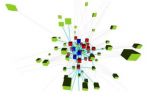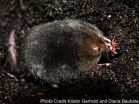(Press-News.org) MANHATTAN, Kan. -- Businesses must deal with weary-eyed office workers who are sitting behind computer screens and watching cat videos, shopping online and updating their Facebook statuses.
A Kansas State University researcher studied cyberloafing -- wasting time at work on the Internet -- and the effects of Internet use policies and punishment on reducing cyberloafing.
Joseph Ugrin, assistant professor of accounting at Kansas State University, and John Pearson, associate professor of management at Southern Illinois University in Carbondale, found that company policies are not enough to stop workers from wasting time at work and that sanctions with policies must be consistently enforced for policies to be effective.
The study will be published in the journal Computers in Human Behavior.
Cyberloafing results in lost productivity and could put companies in legal trouble when workers conduct illegal activity or unacceptable behavior like viewing pornography on work computers. Between 60 and 80 percent of people's time on the Internet at work has nothing to do with work.
Although organizations benefit from positive aspects of the Internet like improved communication, some have trouble addressing cyberloafing, Ugrin said. Companies spend time, money and effort trying to monitor computer usage, detect what employees are doing online and write policies for employees on acceptable Internet behavior.
The researchers, who surveyed office workers and university students, found that both older and younger workers find ways to waste time on the Internet -- but in different ways.
"Older people are doing things like managing their finances, while young people found it much more acceptable to spend time on social networking sites like Facebook," said Ugrin, who studies behavioral and ethical issues related to accounting and information systems.
Threats of termination and detection mechanisms are effective deterrents against activities such as viewing pornography, managing personal finances and personal shopping, according to the study. However, that may not be enough.
Policies must be enforced to discourage activities like excessive personal emailing and social networking.
"We found that that for young people, it was hard to get them to think that social networking was unacceptable behavior," Ugrin said. "Just having a policy in place did not change their attitudes or behavior at all. Even when they knew they were being monitored, they still did not care."
Researchers discovered that the only way to change people's attitudes is to provide them with information about other employees who were reprimanded.
But that strategy can have negative consequences in the workplace and can lower morale, Ugrin said.
"People will feel like Big Brother is watching them, so companies need to be careful when taking those types of action," he said.
The study allows questions for further study, Ugrin said.
"We don't want to make everyone at work upset because the corporate office is watching over their employees' shoulders," he said, "but what if workers are wasting all of their time online? Where's the balance?"
### END
Policy, enforcement may stop employees from wasting time online at work, researcher finds
2013-01-31
ELSE PRESS RELEASES FROM THIS DATE:
A new mechanism that contributes to the evolution of cancer
2013-01-31
Cancer arises from the accumulation of mutations and structural changes in chromosomes, which in some cases give rise to combinations that favour the growth or expansion of the disease. In this context, chromosomes tend to lose or duplicate entire regions, although, the mechanisms that initiate these chromosomal abnormalities are not fully understood.
A study published this week in the journal Cell, in which researchers from the Spanish National Cancer Research Centre (CNIO) participated, demonstrates a new mechanism that explains how these changes originate in the chromosomes ...
New Geology study raises questions about long-held theories of human evolution
2013-01-31
What came first: the bipedal human ancestor or the grassland encroaching on the forest?
A new analysis of the past 12 million years' of vegetation change in the cradle of humanity is challenging long-held beliefs about the world in which our ancestors took shape – and, by extension, the impact it had on them.
The research combines sediment core studies of the waxy molecules from plant leaves with pollen analysis, yielding data of unprecedented scope and detail on what types of vegetation dominated the landscape surrounding the African Rift Valley (including present-day ...
Joslin scientists find first human iPSC from patients with maturity onset diabetes of the young
2013-01-31
BOSTON – January 31, 2013 – Joslin scientists report the first generation of human induced pluripotent stem cells from patients with an uncommon form of diabetes, maturity onset diabetes of the young (MODY). These cells offer a powerful resource for studying the role of genetic factors in the development of MODY and testing potential treatments. The findings appear in the Journal of Biological Chemistry.
Human induced pluripotent stem cells (hiPSCs) are adult cells that have been genetically reprogrammed to exhibit the characteristics of embryonic stem cells, including ...
Personalized medicine eliminates need for drug in 2 children
2013-01-31
This press release is available in French.Using genome-wide analysis, investigators at the Sainte-Justine University Hospital Research Center and the University of Montreal have potentially eliminated a lifetime drug prescription that two children with a previously unknown type of adrenal insufficiency had been receiving for 14 years. Over a lifespan, the adjustment in treatment represents an approximate saving of $10,000 in drug and test costs per patient. Moreover, the less invasive treatment regime can potentially reduce the lifetime risk of hypertension in the patients. ...
Nanomaterials key to developing stronger artificial hearts
2013-01-31
On January 30, 2013 ACS Nano published a study by Ali Khademhosseini, PhD, MASc, Brigham and Women's Hospital Division of Biomedical Engineering, detailing the creation of innovative cardiac patches that utilize nanotechnology to enhance the conductivity of materials to induce cardiac tissue formation. Creation of these ultra-thin cardiac patches put medicine a step closer to durable, high-functioning artificial tissues that could be used to repair damaged hearts and other organs.
The cardiac tissue patches utilize a hydrogel scaffolding reinforced by nanomaterials called ...
Pediatric orthopaedic surgeons show age-related patterns of spine injury in ATV injuries
2013-01-31
Memphis, Tenn. – Children continue to account for a disproportionate percentage of morbidity and mortality from ATV-related accidents – up 240 percent since 1997, according to a Journal of Pediatric Orthopaedics report published by pediatric orthopaedic surgeons at Le Bonheur Children's Hospital.
The surgeons – who studied data from the Kids' Inpatient Database – found spine-related injuries from all-terrain vehicles (ATVs) in the United States are more common in older children and in females, unlike males in most trauma studies. ATV-related spine injuries in children ...
Researcher uncovers potential cause, biomarker for autism and proposes study to investigate theory
2013-01-31
NEW YORK, NY — A New York-based physician-researcher from Touro College of Osteopathic Medicine, best known for his research into fertility and twinning, has uncovered a potential connection between autism and a specific growth protein that could eventually be used as a way to predict an infant's propensity to later develop the disease. The protein, called insulin-like growth factor (IGF), is especially involved in the normal growth and development of babies' brain cells. Based on findings of prior published studies, Touro researcher Gary Steinman, MD, PhD, proposes that ...
Working alone won't get you good grades
2013-01-31
Students who work together and interact online are more likely to be successful in their college classes, according to a study published Jan. 30 in the journal Nature Scientific Reports and co-authored by Manuel Cebrian, a computer scientist at the Jacobs School of Engineering at the University of California San Diego.
Cebrian and colleagues analyzed 80,000 interactions between 290 students in a collaborative learning environment for college courses. The major finding was that a higher number of online interactions was usually an indicator of a higher score in the class. ...
Adding new members to group increases distrust among older members, impacts coordination
2013-01-31
Adding a new member to a working group can create distrust between members and hinder group functions, but a new study suggests that the distrust created is between older group members rather than about the newcomers- especially when previous group performance with just the older group members is poor. The results are part of a study published January 30 in the open access journal PLOS ONE by Matthew McCarter and Roman Sheremeta from Chapman University (U.S).
Previous studies report that changing members in an existing group hurts group performance, but the underlying ...
Leading by the nose: Star-nosed mole reveals how mammals perceive touch, pain
2013-01-31
The most sensitive patch of mammalian skin known to us isn't human but on the star-shaped tip of the star-nosed mole's snout. Researchers studying this organ have found that the star has a higher proportion of touch-sensitive nerve endings than pain receptors, according to a study published January 30 in the open access journal PLOS ONE by Diana Bautista and colleagues from the University of California, Berkeley and Vanderbilt University.
Touch and pain are closely intertwined sensations, but very little is known about how these sensations are detected in our cells. In ...


